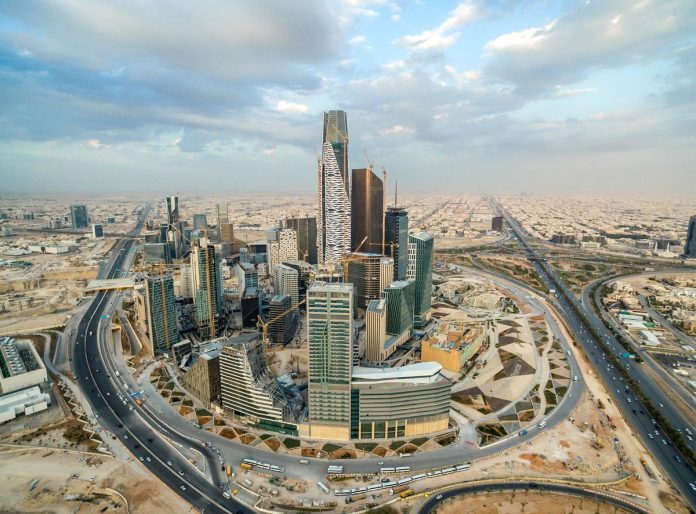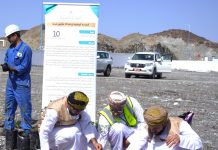Saudi Arabia’s approved one trillion and twenty billion Saudi Riyals state budget for the fiscal year 2020 on Monday, slightly lower than the last three years expenditure. The budget 2020 underlined the importance of economic transformation, in line with the kingdom’s Vision 2030, and stressed on the steps needed to execute it.
Here are the top takeaways from the Saudi Budget 2020:
1. Spending & Expenditure
The kingdom’s expenditures were approved at 1.02 trillion riyal, revenues estimated at 833 billion riyals and deficit at 187 billion riyal or 6.4 per cent of the gross domestic product (GDP).
However, the actual spending for 2019 is expected to reach 1,048 billion riyal, and the total actual revenue is about 917 billion riyal, and a deficit of 131 billion riyal or 4.7 percent of the GDP, Minister of Finance Mohammed Al-Jadaan pointed out.
2. Growth in non-oil sectors
Total growth of private non-oil gross domestic product reached 3.4 per cent during the second quarter of 2019. Wholesale, retail trade, restaurants and hotels sector grew by 5.8 per cent, while the transport, storage and communications sector, which includes logistical and technical services, recorded a growth of 6.4 per cent, informed the state media SPA.
Other industries too witnessed a good growth. Financial services, real estate and insurance grew by 5.4 per cent. Construction industry witnessed a 4.9 per cent growth while collective and social services sector, which includes sports and entertainment, recorded a growth of 7.4 per cent.
Read: Saudi Arabia grants premium residency to 73 foreigners
3. Budget Allocation
In line with Saudi Arabia Vision 2030, the kingdom allocated 167 billion riyals to health and social development sector, and 193 billion riyals to education sector — representing a total of 35 per cent the approved spending.
4. GDP
The review of medium-term estimates for real GDP growth rates indicates a growth of about 2.3 per cent in the Fiscal Year 2020, with the pace of growth expected to continue in the medium term, said the state media.
5. Budget Deficit
The budget deficit is expected to reach about 4.7% of the GDP in 2019, as compared to 5.9 per cent in 2018 and 9.3 per cent in 2017, said Crown Prince Mohammed bin Salman. This “confirms the continuation of efforts to ensure financial sustainability with progress in implementing projects and developing the private sector,” he added.
6. Public Debt & Unemployment
Total public debt is estimated to reach 26 per cent of the GDP by the end of 2020, said the Finance Minister. Unemployment figures meanwhile touched 12.3 per cent, at end of the the half first of FY2019, a decline of 4.0 percentage from last year.
7. Environmental Sustainability
While the Saudi Budget 2020 did not specify the allocation of funds towards environmental sustainability, it did highlight and acknowledge its importance.
“Budget 2020 comes in light of a global economic climate that prevails challenges, risks and protectionist policies, which requires flexibility in managing the public finances and enhancing the ability of the economy to address these challenges and risks,” said the Crown Prince. “We aim, through this budget, to take advantage of what has been achieved from programs and build on it, so that the balance is continued between the pace of economic growth rates and the maintaining of sustainable financial stability that ensures support for this growth,” he added.
Last week, World Bank had highlighted that the Gulf Cooperation Council (GCC) economies need to focus on as environmental sustainability as growth slumps.
8. Aramco Revenues
World’s largest oil giant Saudi Aramco is set to be listed this week. It priced its initial public offering (IPO) at 32 riyals per share. Proceeds from the share offering will be re-invested in the local economy and to create more revenue channels for the government, the state said during the budget cabinet meeting.
The Crown Prince pointed to Aramco’s IPO role in enhancing the overall growth and diversification of the economy and increasing employment rates in the medium and long term. “We aim to create an attractive investment environment that contributes in directing the national economy towards wider prospects of diversification, growth and prosperity,” he said.
9. Fiscal Projection

10. Privatisation Push
The latest figures and statement announced once again highlights Kingdom’s push towards privatisation.
“We are determined to continue implementing economic reforms, diversifying sources of income, including investing the proceeds of Saudi Aramco by the Public Investment Fund, optimizing the use of available resources, empowering the private sector and raising the level of transparency and efficiency of government spending to boost growth and development rates,” said King Salman.
Supporting the King’s statement, the Finance Minister added privatization is at the top of the government’s priorities and stressed that there would be no increases in taxation.






